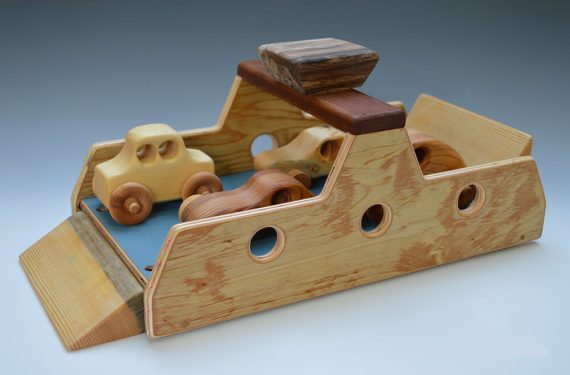The Ministry of National Education organized a consultation meeting with the sector representatives for the design and manufacturing of wooden toys, which are highly needed and imported in large proportions by Turkey. Turkey’s National Education Minister Ziya Selcuk stated that they aim to maintain wooden toy manufacturing with the leading representatives of the sector and contribute to domestic production in this line of work.
Along with the sector representatives, the Deputy Minister of Education Mahmut Ozer, Vocational and Technical Education Director-General Kemal Numanoglu, department heads and relevant experts attended the meeting chaired by Selcuk.
Anadolu Agency reported that the decisions taken in the meeting include co-organizing a curriculum for wooden toy manufacturing education, sharing the sector representatives’ experience with pilot schools, enabling the sector’s support to the on-the-job training of teachers who are to provide education on the subject and to the organization of student training in real production spaces.
During the meeting, the sector representatives demanded the Ministry to conduct informing and training activities regarding the developments in the field. Besides, it was decided to design wooden toys and other materials that support children’s development in pre-school education and to found R&D units for the use of these materials in skills workshops planned to be established in schools.
Supporting domestic production
National Education Minister Selcuk stated that they attach great importance to the project on wooden toy manufacturing, adding that they chose a number of schools enjoying strong infrastructure in various provinces of Turkey for the newly initiated pilot project.
Recommended
Selcuk pointed out that the pilot schools chosen for the project include Altındag Siteler Vocational Training Center in Ankara, Bayrampasa Inonu Vocational and Technical Anatolian High School in Istanbul, Inegol Haiı Sevim Yildiz Vocational and Technical Anatolian High School in Bursa and Dursunbey Vocational and Technical Anatolian High School in Balikesir. He also emphasized that they will increase the number of pilot schools according to the sector’s position in the relevant provinces.
Selcuk went on to say that the domestic production of wooden toys is quite low, adding:
“We wish to maintain this process with the sector representatives and contribute to domestic production in this field. In doing so, we will be able to develop joint projects and support each other as well as raising and training qualified human resources needed by the sector on the level of high school education. Thanks to that, we will support our own market with domestic production and strengthen our position in the global market.”
Imported toys valued at more than $3 billion
Throughout the meeting, it was underscored that wooden toy manufacturing is a major market in the world and countries are in a cutthroat competition in this field. It was also noted that the toys imported by Turkey for the past five years cost more than $3 billion. Considering these figures, the National Education Ministry’s support to the manufacturing activities by means of training and cooperation with the sector engaging in domestic toy production are important steps towards increasing Turkey’s competitive power.
Previously, the National Education Ministry started the first pilot program for the manufacturing of wooden toys in vocational and technical schools, which engage in production in the fields of furniture and decoration.





